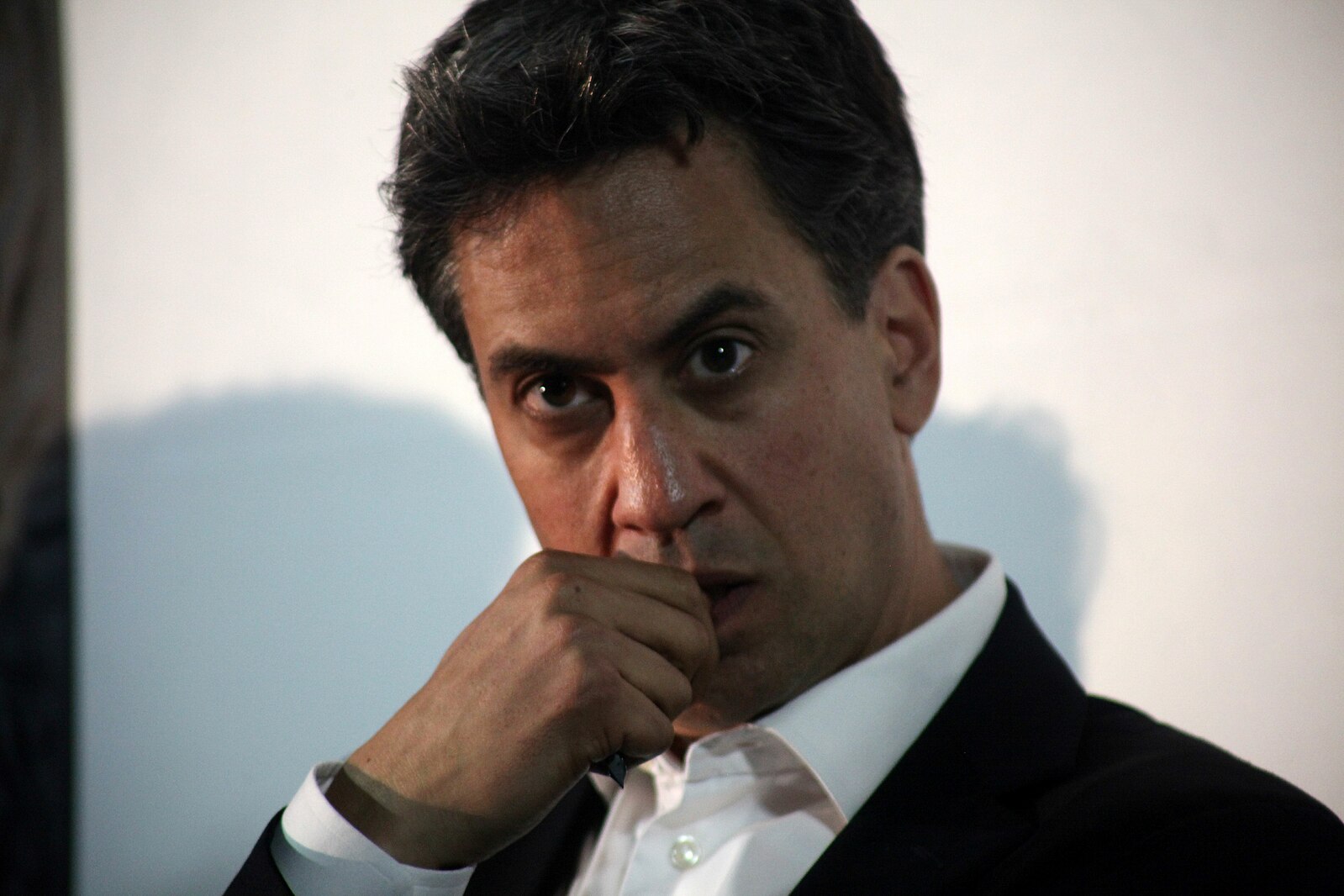
What does a bacon sandwich and a slab of stone in a Hastings car park have in common? Both have been parts of major gaffes made during political campaigns in the UK in recent years.
As voters decide on who will represent their interests in government, general election campaigns come under intense scrutiny from both the press and the public. For this reason, every public interaction, visit, and speech on the campaign trail is meticulously coordinated by staff at campaign headquarters. Press officers and ‘spin doctors’ work to ensure senior politicians remain on-message and avoid negative publicity. Nevertheless, even the most brilliant campaigns aren’t foolproof and British political history is filled with seemingly cursory moments that have sunk campaigns.
Perhaps the most famous campaign blunder is former Labour leader Ed Miliband’s bacon sandwich. During his 2014 local election campaign, Ed Miliband was photographed eating a bacon sandwich by a member of the paparazzi. Despite the protests of his press officers, the photos of Miliband struggling to eat a bacon sandwich would appear widely in the press, with The Sun urging readers not to listen to the Labour leader’s “porkies” with the headline, “Save Our Bacon.” These photos projected an unflattering image of Miliband as error-prone, awkward, and unfit to take the highest office in the United Kingdom. Miliband’s campaign struggled to recover from these photos, and the public mockery persisted throughout the 2015 General Election.
After Miliband’s bacon sandwich incident, David Cameron’s press officers instructed him to eat a hot dog with a knife and fork – opting to appear ‘posh’ to avoid a PR disaster.
Miliband’s campaign faced another major gaffe during the 2015 General Election. The ‘EdStone’, as it would later be known, was an eight-foot-tall slab of limestone engraved with six of Labour’s campaign pledges. While the slab was intended as a grand gesture showing how ‘set into stone’ the party’s pledges were, the decision to unveil it in a car park in Hastings was met with public ridicule., Miliband’s critics named the publicity stunt the “heaviest suicide note in history,” and compared the slab to a headstone under which Labour’s electoral hopes would be buried.
During the 2024 election campaign, Rishi Sunak visited the shipyard in Northern Ireland where the infamous Titanic was built ahead of an early general election on July 4th. During the visit, a reporter asked the incumbent Prime Minister if he was the “captain of a sinking ship,” making light of Sunak’s campaign strategy. Sunak’s public image soured further after being photographed under an EXIT sign, foreshadowing his inevitable exit from Downing Street weeks later.
While the Blair administration was notable for enforcing party discipline – thanks largely to their lead spin doctor Alastair Campbell, who was vital for the successful rebrand of New Labour – the New Labour governments weren’t immune to failure. During the 2010 General Election, incumbent PM Gordon Brown was asked by lifelong Labour voter, Gillian Duffy, about the number of immigrants entering the country. After responding to the question, Brown – unaware that a Sky News microphone was still live – called Duffy a “bigoted woman” to his press officers in private. Jon Stewart, a U.S. news commentator, later described this as the moment when Brown’s “political career left his body.” Although Brown would return to Duffy later that day to apologise for his actions, she refused to shake his hand and stated she would not be voting for Labour or any other party. At a time when trust in politicians was at an all-time low following the 2009 expenses scandal, Brown’s gaffe further damaged his reputation, contributing to his election loss.
When reflecting on an election campaign, a single moment can define the entire race. As social media has grown in use as an information source, brief moments such as those described above have reached more and more voters, amplifying their influence. Nevertheless, these gaffes are important windows into the more authentic side of politicians and are an entertaining part of the drama that makes up British politics.
Image source: Kevin Walsh via Wikimedia



Average Rating